Data
Austrian COVID-19 Open Data Information Portal
The statistical information of the Federal Ministry of Social Affairs, Health, Long-Term Care and Consumer Protection (BMSGPK) on the spread of novel coronavirus (COVID-19, SARS-CoV-2) is available as Open Government Data (OGD) under the Creative Commons (CC) open license (CC-BY-4.0). The data are reusable by the general public under the condition of attribution (i.e., citation of the source BMSGPK) in machine-readable format along with the associated metadata.
This is in line with the requirements of the Information Reuse Act (IWG) and the EU’s Open Data and Public Sector Information (PSI) Directive 2019/1024.
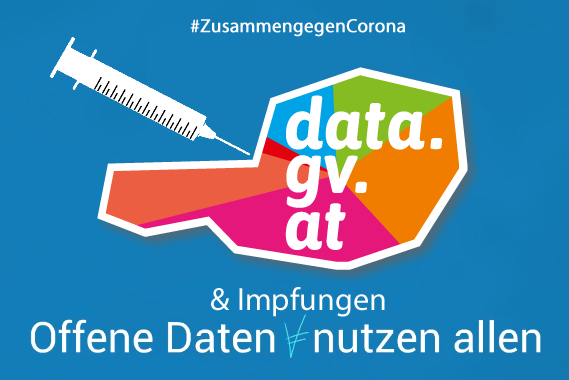
Records
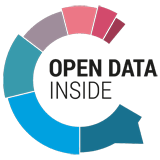
- COVID-19: Doses of vaccine administered by demographic groups.
- COVID-19: Immunization data at the community level.
- COVID-19: Currently valid vaccination certificates in Austria
- COVID-19: Time series of Corona vaccine doses administered.
- COVID-19: Time trend of reported COVID-19 numbers by state (morning report).
- COVID-19: Time course of reported COVID-19 cases in EMS (morning report).
- COVID-19: Vaccinations – doses delivered and ordered
- COVID-19: Data Covid19 cases per age group.
- COVID-19: Data Covid19 cases per GKZ.
- COVID-19: Temporal presentation of Covid19 case data by state.
- COVID-19: Temporal representation of Covid19 case data by county.
- COVID-19: Hospital utilization data and test results.
- COVID-19 Checkboxes locations Vienna
- Statistics Austria: Deaths in Austria (excluding deaths abroad) as of 2000 by calendar week
- Vienna Mortality Monitoring
- Corona traffic light (risk warning level system)
- COVID-19: Time series of reported COVID-19 school tests.
- COVID-19: Time series of reported COVID-19 pharmacy and facility tests.
Applications and visualizations

The COVID-19 pandemic has led to a remarkable engagement of the developer community in Austria, Europe and worldwide. Now that our lives have shifted heavily into the digital domain and the value of data sharing has become apparent, it is important to continue to support these efforts.
The interpretation of data is a complex matter. This requires the knowledge of experts from many different fields and, above all, cross-border cooperation. Open data, available in one place to all, enables successful and rapid interaction among scientists, researchers, developers, and analysts. Successful data analysis and problem solving strategies rely on the availability of accurate data. Using a variety of technical support, it is possible to draw faster and more effective evidence-based conclusions despite complex data.
The following overview shows which applications and visualizations have been created for COVID-19 and beyond.
- Official Vaccination Dashboard of the Federal Ministry of Social Affairs, Health, Long-Term Care and Consumer Protection (BMSGPK)
- Official Dashboard of the Federal Ministry of Social Affairs, Health, Long-Term Care and Consumer Protection (BMSGPK)
- Erich Neuwirth’s COVID-19 analyses – www.covidanalysen.at
- COVID-19 Dashboard Austria
- CorIn.at – CoronaInfo-Austria
- Corona Numbers Online
- COVID-19 Dashboard – Province of Tyrol
*
- COVID-19 Tracker Austria
- Coronavirus COVID-19 cases in Austria
- Covid-19 – Recovered, Sick & Deceased
- Covid-19: Spike map of cases/district
- coronatracker.at
- infected.at
- Coronavirus – Austria
- Corona-map
- COVID-19: Districts and countries with time series and min/max
- COVID.hello friends
- Covid-19 cases reported daily per county
- Coronavirus in Austria: data and maps on ORF.at
- Corona traffic light
- CSH Health Care Info Point
- COVID-19 visualizations
- Reproduction number progression
- covid-19 austria
- Virus Atlas Austria
- Corona Dashboard
- Corona traffic light status website widget for Hallein
- Corona traffic light widget
- Corona traffic light region Wiener Neustadt
- Corona traffic light status info phone
- Corona traffic light iframe
- COVID data regional with time series
- Schicho’s Mobile Corona Traffic Light
- Corona traffic light as cartogram
- Corona Information District Schwaz
- Gem2Go The Municipality Info and Service App
- Atenas – Corona traffic light warning signals for catering & hotel industry
- Corona traffic light of SC Marchegg
- CommunityApp Austria
- Dashboard COVID-19 in Austria
- Development of 7-day incidence to covid-19 in Austria’s districts.
- Corona Dashboard Austria
- covid-checker.com
- Covid 19 – Number of people tested positive
- COVID19/Corona Test Locations
- COVID19 Development Austria
- COVID-19 Graphic Platform Austria
- The second wave
- COVID-19 Austria Hotspots
- home.in
- Accessibility of the free Covid test stations
- Covid-19: 2020 in review
- COVID-19 Dashboard Austria
- Covid in Austria Dashboard
- Corona aktuell East Tyrol incl. Graphics, traffic light and vaccination dashboard Austria
- Corona table with statistics and own predictions
- pandemicend.at
- COVID-19 Weathermap
- COVID-19 Vaccinations in Austria
- Current Corona Statistics
- Vaccination ban
- Coronavirus in Austria
- Hospital folder
- lab.at COVID-19 Grafken
- Corona traffic light representation
- Covid19 Forecast
- Scriptable Vaccination Stats Widget
- Corona-Ampel.org – Dashboard and local newsletter
- Extrapolation to full immunization
- Incidence and intensive care beds
- Covid-19 incidence from multiple sources in one graph
- CovidLux
- Exit tests.at
- Covid 19 vaccinations by age group over time.
- WarpSpeed
- ICU Dashboard
- AVACT (Austrian Vaccination Age Case Trends)
- COVID-19 Poll Immunization Level of Austria by Municipality
- Covid comparison 2020 to 2021 Salzburg and Hallein district
- Covid incidence by district in Austria (hexagon map)
- COVID-19 Simulations
- Multi-week forecasts of intensive care bed occupancy.
- Estimation of exogenous drivers to predict COVID-19 pandemic using a method from nonlinear control theory.
- Percentage of Valid Covid Certificates
- Valid vaccination certificates by municipality
- COVID-19 Dashboard Austria
Is an application or visualization missing? Then please submit them here!
Combating Fake News

Open data is an efficient means of combating misinformation or fake news. Data that is made openly available by a trusted source can be verified for accuracy at any time or linked for permanent proof. Thus, misinformation can be quickly refuted.
The most trustworthy data on the spread of coronavirus have been produced under public mandate and come from official sources. They are therefore of outstanding value to the general public. Ideally, data will be provided by an official Single Source of Truth (SSOT).
Data-driven initiatives
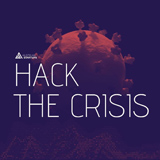
The Corona crisis shows that common cohesion and common know-how are beneficial for all. This requires open and collaborative interaction, also on the basis of Open Data. The following initiatives are key contributors to better solutions to address the crisis. At this point a big thanks to all developers – Together against Corona!
Virtual Hackathon
Hack the Crisis Austria | Austrian Startups (March 27-29, 2020)
Results: https://www.hackthecrisis.at
Europe

The virus knows no borders. European and international cooperation are critical to addressing these challenging times. Pooling information and active cooperation will lead us better through the crisis.
At the initiative of the European Union, an overview of datasets and data-driven initiatives on COVID-19 across Europe has been produced by the European Data Portal (EDP):
https://www.europeandataportal.eu/de/covid-19/overview
Open source and privacy through technology
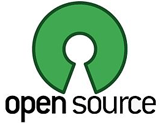
Open source software is a crucial contribution to strengthening trust in digital applications, as the source code can be checked by users for its trustworthiness and improved if necessary. A diverse interaction of all interested parties in the development and improvement of applications can decisively increase their usefulness and security.
Data security and data protection by technology and data protection-friendly default settings(Privacy by Design & Privacy by Default) should ideally be thought about and implemented from the outset and conceptually when developing applications.
Github – central collection point for open source software
GitHub is an online service that provides open source software on its servers and makes it reusable for developers. Github enables efficient version management, i.e. changes and innovations to the code of software projects are made available in an updated form by means of publicly accessible source code databases (repositories).
Showcase Italy on COVID-19: A daily dataset on cumulative COVID-19 data has been published on Github by the Italian Civil Protection Agency since 2/24/2020. This contributes significantly to the improved reusability of statistical data.
Open Source Applications
- Stop Corona App of the Austrian Red Cross
https://www.roteskreuz.at/site/faq-app-stopp-corona
Source code: https://github.com/austrianredcross - Initiatives to develop an enabling technology – open source code:
- Decentralized Privacy-Preserving Proximity Tracing(DP-3T): https://github.com/DP-3T/documents
- Pan-European Privacy-Preserving Proximity Tracing (PEPP-PT): https://www.pepp-pt.org
- Further information:
Wikipedia: https://de.wikipedia.org/wiki/COVID-19_App
- COVID-19 Tracker Austria
- Corona-map
- Is an application missing? Then please submit them here
Open science
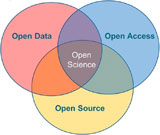
Open science enables efficient collaboration between researchers and developers. In this context, research data, reports, and other research processes are freely accessible under conditions that enable the reuse, redistribution, and duplication of research and its underlying data and methods. Open Science is transparent and accessible knowledge shared and (further) developed through collaborative networks.
This methodology of open collaboration proves particularly effective in times of crisis. At European level, work is currently underway to establish a European Open Science Cloud (EOSC).
European COVID-19 Research Data Platform
To boost COVID-19 research efforts, the European CO VID-19 Research Data Platform and the European COVID-19 Research Data Portal have been established. The goal of the data portal is to facilitate data sharing and analysis and to accelerate Corona research activities. Networked European Data Spaces for COVID-19 are also part of the emerging European Open Science Cloud (EOSC).
Link: https://www.covid19dataportal.org/
Further information
- Wikipedia: Open Science https://de.wikipedia.org/wiki/Offene_Wissenschaft
- European Bioinformatics Institute (EMBL-EBI) https://www.ebi.ac.uk/covid-19
- Coronavirus: platform established for data sharing among researchers
Important information about the Corona virus

Important information on the coronavirus and how we can protect ourselves is available via the central platform for digital official channels and administrative information oesterreich.gv.at.
Lessons from the crisis
It is important to thoroughly analyze the lessons learned from the COVID-19 pandemic, especially with regard to the resilience of the digital infrastructure and the further development of the data-driven society and economy. The crisis has likewise highlighted the value and benefits of digitization, for example, so that large sections of society and the economy could continue to function in the home office.
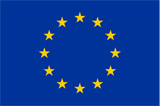
Does Corona accelerate the further development of the European Data Space? What should the digital future of Austria and Europe look like? How can we all contribute to a positive digital transformation?
The European Commission unveiled new strategies for data and artificial intelligence in February 2020. For example, you can still participate in the public consultation on the European Data Strategy until May 31, 2020, and submit proposals to the Commission for the future development of EU law.
During the crisis, activities to identify high quality datasets in line with Open Data and PSI Directive 2019/1024 continue. Suggestions on Open Data, data sharing and analysis, and high-quality datasets at any time to the PSI and Open Data Task Force of the Federal Ministry for Digitization and Economic Development (BMDW).
Feedback
Any general suggestions for improvement? Open Data is not a one-way street. For each data set on data.gv.at, appropriate feedback can be given and contact can be made with the data controller – contact details respective metadata sheet, example COVID-19 data of the BMSPGK:
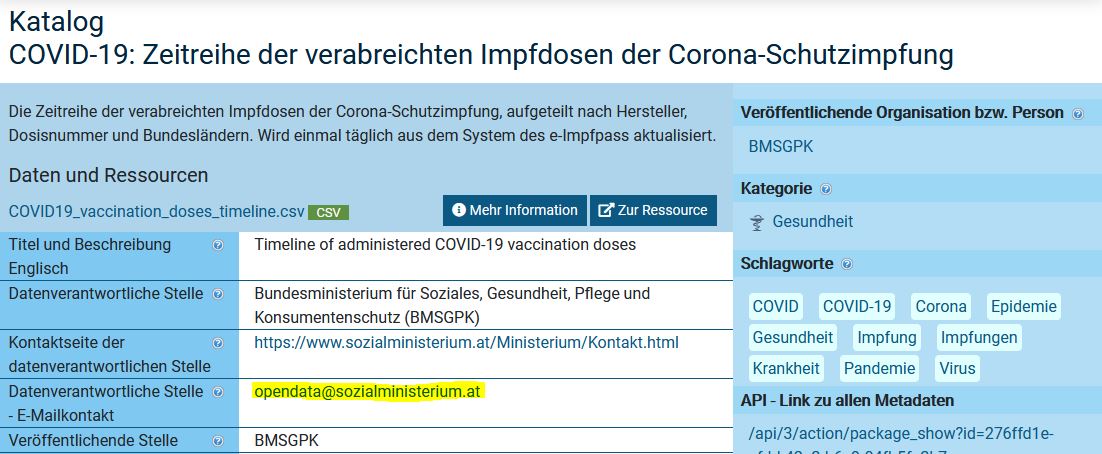
General suggestions and improvements at any time via email or Twitter.

Teilen
2 Klicks für mehr Datenschutz: ein wesentliches Open Data-Prinzip besagt, dass keine Daten veröffentlicht werden dürfen, die einen Rückschluß auf einzelne natürliche Personen zulassen. Ein ähnliches Prinzip zum Schutz persönlicher Daten wird auf data.gv.at bei Teilen-Buttons für Social-Media-Netzwerke verfolgt: da diese Teilen-Buttons allein beim Laden bereits Daten übermitteln, bieten wir Ihnen die Möglichkeit der Selbstbestimmung - Sie können selbst entscheiden, ob ein Teilen-Button aktiviert werden soll oder nicht.







